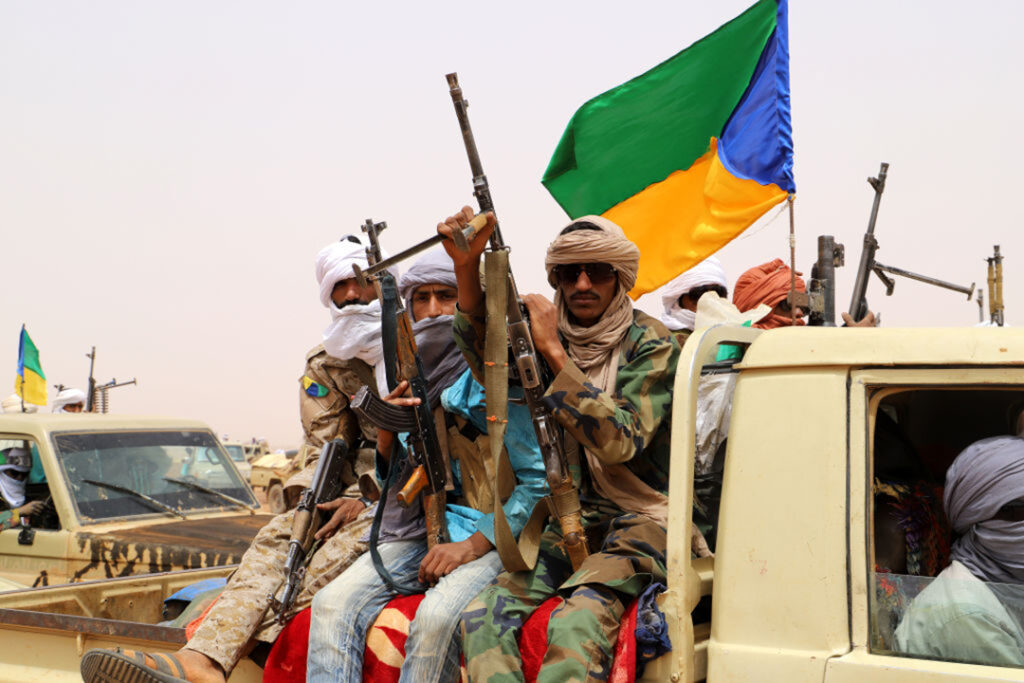ADF STAFF
Shortly after COVID-19 was declared a pandemic in March 2020, United Nations Secretary-General António Guterres appealed for peace so the world could focus on defeating the virus.
“The virus does not care about nationality or ethnicity, faction or faith. It attacks all, relentlessly,” he said. “The fury of the virus illustrates the folly of war.”
Two new reports say that despite COVID-19, certain regions in Africa continued to be plagued by violence.
Conflict decreased globally, according to the 2020 annual report by the Armed Conflict Location & Event Data Project (ACLED).
“Political violence decreased by approximately 22%,” the report read, noting Africa as the exception. “Fatalities from political violence decreased by 19% … in every region save for Africa.”
Another organization, the African Centre for the Constructive Resolution of Disputes (ACCORD), has been reporting since April 2020 on how the pandemic affects continental conflict. It correlates high numbers of COVID-19 infections in Sub-Saharan Africa with areas of instability, such as Ethiopia, Mozambique and Nigeria.
Writing for ACCORD, researcher Rui Saraiva recently examined Cabo Delgado, a province in northern Mozambique, where increasing cases of COVID-19 coincided with a rise in violence by Islamist insurgents with ties to ISIS.
In displacing more than 670,000 people, attacks by Ansar al-Sunna exacerbated the pandemic’s impact.
Security forces “are ineffective in the short and long term to address its root causes,” he wrote. “Pragmatic, adaptive, and holistic approaches focused on resilience have more chances to effectively address the interplay between violent extremism and human security threats, such as the COVID-19 crisis.”
Although the COVID-19 pandemic has killed more than 131,000 Africans and infected 4.8 million over the past 14 months, it also has provided cover for governments, insurgents, military forces and criminal organizations to repress or attack civilians.
“Extreme events like the coronavirus pandemic have significant and direct impacts on disorder,” ACLED research director Roudabeh Kishi wrote in a July 2020 article for Foreign Policy magazine. “Governments can adopt immediate legislation to limit the activity of citizens, and state and nonstate actors alike can exploit the unrest surrounding a pandemic, natural disaster, or the like to advance their political priorities.”
ACLED’s 2020 report, released in March 2021, emphasized some startling developments.
Attacks on civilians decreased worldwide from 2019 to 2020, except for abductions, which increased in Nigeria by 169% and the Democratic Republic of the Congo by 21%.
Political violence in Africa rose by 4,328 incidents and 9,298 fatalities. The report also noted the rise of identity militias, which are organized by factors such as religion, region or ethnicity, in Africa last year, “with a 46% increase in the number of distinct, named identity militias active in 2020 relative to 2019.”
Violent extremist organizations clearly took advantage of the pandemic, as Boko Haram continued to terrorize Nigeria and surrounding parts of the Lake Chad region, al-Shabaab launched regular attacks in Somalia, and extremists battled state and coalition forces in the Sahel.
Guterres’ plea for peace, meanwhile, continues.
“It will be essential for African countries to sustain their efforts to silence the guns and address violent extremism,” he said. “I welcome African support for my call for a global cease-fire.”

